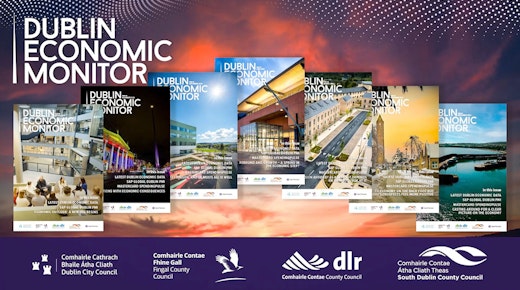Dublin has long punched above its weight in the global race for foreign direct investment (FDI). With its EU access, English-speaking talent pool, and strong track record in tech and life sciences, it remains a beacon for global investors. But the game is changing. In The Great FDI Hustle, I argue that the traditional model of FDI attraction-based on tax incentives, glossy marketing, and passive promotion – is dead. Cities like Dublin need to adopt a more agile, investor-centric playbook.
The first lesson is clear: stop selling, start listening. Too many investment agencies still broadcast outdated messages rather than tuning into what investors actually need. Successful cities now focus on demand-led strategies – building propositions around specific investor problems, not abstract assets. Dublin must become more surgical in how it targets sectors, geographies, and investor types. Generic messaging no longer cuts it in a world of precision targeting. As Andy Burnham Mayor of Manchester explained when asked to comment on the resurgence of his city, “we don’t promote projects, we promote the place“. This is a very different mindset and not about another single occupier shiny building, but a broader inclusive strategy that works for all constituents.
Second, aftercare is the new frontier. Winning new investment gets headlines; keeping and growing it wins the long game. Investors value responsiveness, continuity, and problem-solving. Dublin should double down on account management – supporting existing FDI companies to scale, innovate, and integrate locally. Helping an investor solve a skills gap or navigate planning bureaucracy can yield more impact than landing a flashy new deal. The need for this approach is acute in the current febrile geopolitical atmosphere, and Dublin’s recent FDI campaign which celebrates the contribution of existing investors is right on the money.
Third, the ESG revolution is reshaping investment criteria. Investors want more than profit – they want purpose. Dublin must lead with values, showcasing its green credentials, inclusivity, and governance standards. Projects with strong sustainability angles – such as in green finance, circular economy or cleantech – will resonate more deeply than cost-led pitches.
Fourth, regionalism matters. Investors are no longer buying “Ireland Inc.” They’re buying Dublin, Cork, Limerick-distinct propositions with unique talent, infrastructure, and ecosystems. Dublin should assert its individuality within the national brand, highlighting its innovation clusters, connected universities, and urban dynamism. But it must also collaborate – offering investors clear pathways to scale beyond the city limits.
Lastly, be ready to pivot. The FDI landscape is being redrawn by geopolitics, AI, and deglobalisation. Success will go to places that can adapt. That means constantly refreshing Dublin’s sector focus, refreshing its talent strategies, and being willing to challenge legacy thinking.
FDI remains one of the most effective tools to grow jobs, innovation and exports. But it’s not a right – it’s a race. Dublin has the fundamentals. What it needs now is sharper execution, bolder positioning, and a relentless focus on the investor journey. The hustle is on.





